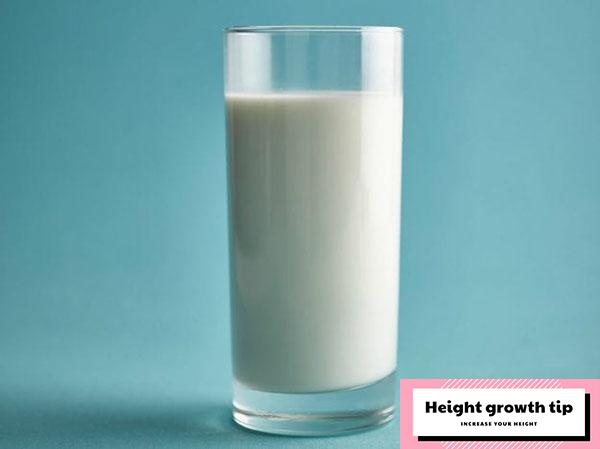In recent years, escalating worries regarding the potential health risks of excessive cow’s milk consumption have gained traction. Even the very origins of our cherished dairy elixir – the cows themselves – have come under intense examination. The incorporation of antibiotics and hormones into their lifecycle has sparked profound inquiries into the lasting effects of these substances on human health. Additionally, the alarming rise in milk allergies among children has left parents and healthcare practitioners seeking answers.
To truly comprehend the complexities of this issue, we must embark on a deeper exploration of the data and figures surrounding milk consumption, its sources, and its potential ramifications. It’s a journey that takes us from serene pastures where cows graze to cutting-edge laboratories where researchers strive to decipher milk’s mysteries. Along the way, we’ll contrast the time-honored wisdom that has shaped our perceptions with the contemporary concerns overshadowing our reliance on dairy traditions.
Could milk hold the key to achieving greater heights?
The belief that milk consumption can lead to increased height is deeply ingrained in our collective intuition.
It is widely acknowledged that our maximum height is primarily determined by our genetic makeup, and attempting to alter it through the consumption of milk or protein shakes before bedtime is simply not feasible. In other words, we cannot manipulate our genes to become taller. However, it is essential to recognize that childhood malnutrition can potentially hinder a child’s maximum height and growth rate. Consequently, it remains crucial to incorporate growth-promoting foods and beverages into a child’s diet.
The question of whether drinking milk significantly contributes to height growth remains a topic of ongoing debate, with experts holding divergent views. While many argue that milk has only a limited impact on height gain during puberty, some maintain that it does not significantly contribute to increased height at all. The reality is that while milk consumption during childhood may support the development of larger bones, its effect on overall height gain is relatively minor.

How does milk help you grow?
Milk is a highly nutritious beverage that contains 13 essential nutrients, all of which contribute to a healthy body. Let’s take a closer look at the critical nutrients found in one cup of whole and low-fat milk compared to the recommended daily intake for adolescents and young adults.
| nutrition | Food sources | Amount in cups | Recommended Daily Intake |
| Calcium | Milk | 276 mg | 1,300mg |
| Low fat milk | 293 mg | 1,300mg | |
| Vitamin A | Milk | 112 RAE | 600-900 mcg RAE |
| Low fat milk | 134 RAE | 600-900 mcg RAE | |
| Vitamin D | Milk | 5 IUs | 600 IU |
| Low fat milk | 120 IUs | 600 IU | |
| Proteins | Milk | 7.69g | 0.5g per kg |
| Low fat milk | 8.05g | 0.5g per kg |
While it is true that consuming dairy products cannot override genetic or environmental factors affecting height, it can certainly help mitigate the impacts of childhood malnutrition by providing a variety of essential nutrients. For instance, vitamin A plays a role in promoting bone growth, while vitamin D helps in maintaining bone strength. Moreover, milk contains insulin-like growth factor 1 (IGF-1), a naturally occurring protein that stimulates cell growth and is utilized in the treatment of growth-related conditions in children.
It is important to note that IGF-1 is not exclusive to milk, and other food sources can also provide these essential nutrients if milk is unavailable or undesired. Nonetheless, milk continues to be one of the most convenient and cost-effective sources of numerous growth-promoting nutrients, making it highly recommended as a regular component of a healthy diet for growing children.
Determining the Optimal Milk Consumption Time for Maximizing Height Growth
Many individuals seek to understand the best timing for incorporating milk into their diet to promote height development optimally. It’s essential to note that milk may not significantly impact the height of adults whose growth has already ceased. Typically, growth plate closure and bone consolidation occur between the ages of 18 and 25. However, for those still in childhood, adolescence, or early twenties, integrating dairy products into the diet can be beneficial.
Height largely depends on skeletal growth and bone maturation, making it advisable to include milk as part of the daily regimen. Milk can contribute to enhancing bone mineral density, stimulating bone formation, and reducing bone mass loss.
Determining the Most Effective Type of Milk for Height Enhancement
Cow’s milk is frequently praised as one of the most effective options for promoting height growth. Studies suggest that children who consume approximately 8 ounces of non-cow’s milk daily are, on average, 0.2 inches shorter than peers who consume an equivalent amount of cow’s milk. Additionally, three-year-olds who regularly consume cow’s milk tend to be approximately half an inch taller than those who choose alternative milk options.
Goat’s milk provides another attractive alternative to cow’s milk. It is known for its high vitamin A content, which supports bone and muscle strength. Moreover, it contains essential vitamin D for calcium absorption and boasts approximately 20% more protein than cow’s milk.
In recent years, the popularity of plant-based milk substitutes has surged, offering ample protein and essential nutrients. These alternatives, derived from non-animal sources, address issues related to milk allergies or lactose intolerance. For instance, oat milk offers comparable nutritional benefits to traditional cow’s milk and, if well-tolerated, can potentially contribute to height growth over time.

Unraveling the Health Mysteries of Milk
For countless individuals worldwide, milk serves as a cornerstone of their daily diet, praised for its purported health virtues. Yet, it’s vital to recognize that the impact of milk on one’s health is as diverse as the individuals themselves. As we delve deeper into the enigmatic realm of this dairy elixir, let’s explore some lesser-known dimensions of its potential benefits:
Glowing Skin: Milk harbors lactic acid, a natural compound renowned for its skin-rejuvenating prowess. Regular application of milk-based skincare concoctions or homemade facial masks can yield a smoother, more supple complexion. However, it’s paramount to exercise caution, as certain individuals may exhibit skin sensitivities or allergies to dairy. Before integrating these products into your skincare regimen, it’s prudent to conduct a patch test to gauge compatibility with your skin’s unique chemistry.
Assisting Weight Management: With its rich protein content, milk emerges as a valuable ally in the quest for weight control. Protein fosters a sense of satiety, potentially curbing unhealthy snacking tendencies. Nevertheless, sustainable weight management necessitates a multifaceted approach encompassing calorie consciousness, physical activity, and overall dietary habits. Milk, though beneficial, represents just one piece of the weight-loss puzzle.
Promoting Dental Health: Milk’s trifecta of calcium, phosphorus, and casein plays a pivotal role in fortifying dental wellness. These constituents bolster enamel strength and help fend off dental decay. However, it’s imperative to acknowledge that milk alone cannot serve as a panacea for dental woes. Sustaining a radiant smile demands unwavering commitment to impeccable oral hygiene practices, including regular brushing, flossing, and scheduling routine dental check-ups.
Potential Disease Protection: Scientific inquiries have hinted at plausible links between milk consumption and reduced susceptibility to certain ailments. Nonetheless, it’s crucial to approach these findings with a healthy dose of skepticism. Further research is indispensable to establish conclusive evidence regarding milk’s impact on variables like blood pressure, stroke risk, cholesterol profiles, and cancer incidence.
It’s paramount to underscore the considerable variability in individual dietary needs and tolerances. Not everyone will reap identical benefits or exhibit the same tolerance levels upon incorporating milk into their dietary repertoire. If you harbor specific health concerns or dietary constraints, consulting a healthcare professional or registered dietitian is prudent. They can furnish tailored guidance and recommendations tailored to your unique circumstances.
In Conclusion:
While milk consumption holds promise in bestowing an array of potential benefits, it’s not a magic elixir for height augmentation. Genetics wield significant influence in determining stature. Unleashing your full height potential hinges on a holistic approach encompassing balanced nutrition, a health-conscious lifestyle, ample sleep, and regular physical activity. Nonetheless, including milk as part of a diversified diet remains advisable, as it furnishes the body with indispensable nutrients crucial for overall health and well-being.
- Related post: Top 10 magnesium-rich foods help increase height

